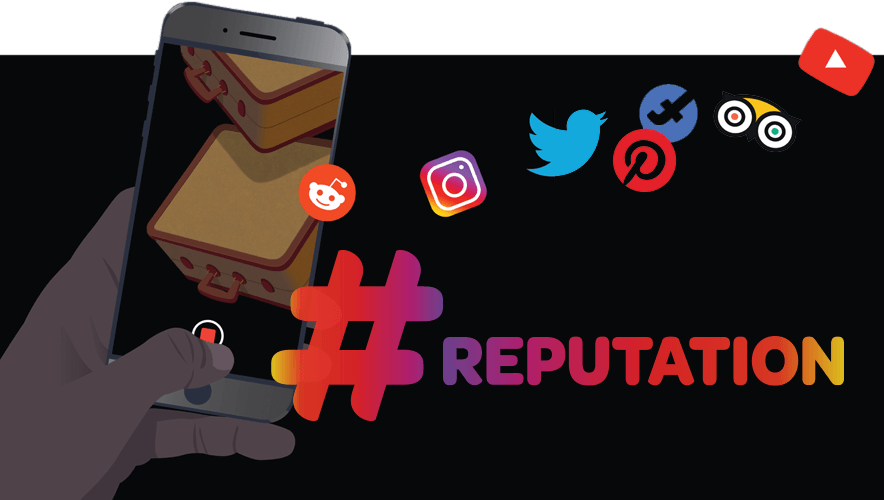How Hotels Stay Welcoming in the Age of Social Media Confrontations
Capable of launching fame and stardom or organizing civil protests, YouTube, Facebook, Twitter, Reddit, and other social media outlets have created a multitude of global communities and connections. But the adverse effects of social media are like a Lernaean Hydra, spreading its poisonous breath to more and more corners of society and industry.
As Hercules can attest, this beast is tough to kill, but adaptive hotel security professionals find it at least manageable once it’s understood and a strategy is in place. However, strategy can be tricky when anyone—whether bystander or belligerent guest—can take out a cell phone to record events that could affect a facility or organization’s reputation.
For some in the hospitality security profession, it helps to remember that social media is, at its core, an extension of interaction with guests. While technology has reformatted and repackaged the presentation, “Social media is just an extension of the guest experience,” says Paul Moxness, former CSO of Radisson Hotel Group. Moxness is now founder and co-owner of the Always Care Consulting Company. But these extensions also mean it is another avenue for an old hat: adverse media, negative news, bad press.
According to Brad Bonnell, founder and consultant for Hotel Security Group LLC and vice president of loss prevention for Extended Stay America, hotels are accustomed to undercover reporters or teams on the premises, attempting to expose a vulnerability. “What you will see are people who are not prepared. They attempt to be helpful, and they just end up aggravating the situation,” Bonnell says. A skilled director or interviewer can talk an untrained security employee into publicly asserting hotel negligence.
“If you’re going to be a responsible business leader, you’d better prepare your people for this,” Bonnell says. He adds that security leaders need to be ready to mitigate negative fallout from social media, which, if left unchecked, could sour a public image.
#Fail
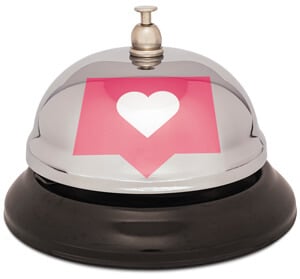 If mishandled, the speed at which a social media post can spread can force a company or facility to deal with an issue in both a court of law and a court of public opinion. If something online is perceived as negligence or mishandling of a situation, “it can spread like wildfire if the hotel doesn’t get hold of it right away and provide appropriate follow-up and response to the issue,” Moxness says.
If mishandled, the speed at which a social media post can spread can force a company or facility to deal with an issue in both a court of law and a court of public opinion. If something online is perceived as negligence or mishandling of a situation, “it can spread like wildfire if the hotel doesn’t get hold of it right away and provide appropriate follow-up and response to the issue,” Moxness says.
Moxness also finds that the old ways of playing off a faux pas no longer apply—the spin game is not only a poor reaction, but also a dated one that can backfire. Claiming that an incident was part of a training exercise or drill can quickly be exposed as an attempted cover-up because the truth is usually recorded somewhere. “You can’t do that anymore,” says Moxness. “The only thing that works today is a truthful, direct response.”
Failure to accept responsibility for a botched incident worthy of generating a trending Twitter hashtag opens an individual or organization up to widespread criticism and public ire. And while previous liability guidelines stressed not placing a facility in a position to lose a lawsuit, the public can now levy significant financial impacts on a company before an issue is ever presented to a judge.
“You have to be really careful about the legal side of things, but you have to be much more careful about making sure that you’re perceived properly, as well,” Moxness warns. “If you’re perceived to be hiding information or not taking responsibility, then it doesn’t matter what the legal position is down the road because you might already be out of business before the court case starts.”
Essentially, without targeted training for security staff, a team is more likely to fan the flames of a social media incident than put it out. “The bottom line is if you are going to be able to manage and contain what is a foreseeable, predictable threat in the form of adverse social media, you need to have a plan in place,” Bonnell says. “You need to have training.”
Reacting to Social Media 101
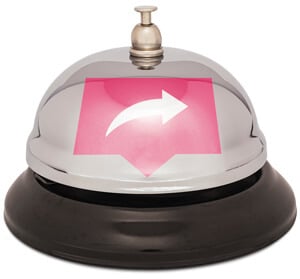 Having clear guidelines incorporated into basic and professional training to deal with social media should be part of a hospitality organization’s security policy, if not its general policy. “Any staff member could encounter that guest,” Moxness says.
Having clear guidelines incorporated into basic and professional training to deal with social media should be part of a hospitality organization’s security policy, if not its general policy. “Any staff member could encounter that guest,” Moxness says.
Such policies help establish a foundation for dealing with the adverse media generated by someone posting or recording something.
“It’s imperative that you have provided your people with clear guidelines on how to respond to a situation like that because it is something that is to be reasonably anticipated and is certainly predictable,” Bonnell says. “It’s just the reality of the world that we’re dealing in now.” Training for and treating such incidents as predictable could help make the appropriate reaction rote. Overall, Bonnell says, the hospitality security industry is behind the times in adopting social media policies and addressing posts’ potential impacts on an organization.
“We’re catching up,” Bonnell says. “I think that it’s self-evident that the adverse impact of critical social media is an emergent threat to this industry.”
Extended Stay America benefits from having a central security policy applicable to all 550 of its hotel locations. According to Bonnell, internally communicating standards is easy for the company. “It’s a matter of providing, as part of our training to all of our associates, what our expectations are in terms of dealing with the media and being certain that they understand that the public relations team are the only ones who are authorized to speak for the company,” he says.
Training starts with making it clear to all associates precisely who has the authority to speak for and represent the company, but it should also include having staff know what to not say or do—not only when they spot a camera, but at any time given the public, open nature of hotels and the voyeuristic culture of the present day.
“It’s important for them to understand that this is a vulnerability, this is a reality,” Bonnell says. “Their behavior and conduct are subject to being monitored at all times.”

Given the difficulties and highly specific requirements set by video hosting sites, sometimes it’s more effective for an employee to use their training to avoid creating a Facebook-worthy video. “Don’t give anybody anything they can use,” Bonnell advises.
Bryan Zahra, director of fire, life, health, safety, and security for Corinthia Hotels Limited, adds that educating your security team to not fear social media and understand their position in the situation is the best way forward. Security personnel should approach situations cautiously and not overreact, “because in that regard, things will escalate and obviously you wouldn’t end up with the result that we would like to,” he says.
According to Zahra, Corinthia Hotels promotes peer education and learning from previous experiences with guests. Employees are interviewed, sharing their experiences, which can be reviewed as learning tools by colleagues on the company’s intranet. “In order to adapt, you need to educate.... We need to learn to be more flexible,” Zahra says. The peer experience system is one way the company is working towards increased flexibility and efficacy.
However, Bonnell, who was global security director for Intercontinental Hotels Group (IHG) for 19 years prior to joining Extended Stay America, adds that executing standards can get trickier for larger and more diverse organizations where franchises make up a significant portion of the company’s portfolio, such as with Marriott or IHG. While policies apply to all, implementation relies on the individual franchisee, and an incident at a franchise location can still impact the parent company’s image.
“Many of the franchises, many of the independent operators, do not have a policy in place—they probably are not taking this into consideration,” Bonnell says. Whether it’s a lack of infrastructure, human resource support, or communications, smaller or fractured organizations often do not view social media as an emerging threat, he adds.
Whether considering security measures for a larger organization or a limited service, economy sector hotel lacking in-house security, establishing clear guidelines and training can come in handy when employees must deal with a hostile, belligerent, or unauthorized guest or visitor who whips out a cell phone, threatening to record or livestream their interaction.
Handling unhappy guests is an important aspect of general hospitality training, providing a path for how to defuse or resolve these types of situations, which may be relatively small, even if complicated by the presence of a camera. When security personnel respond, it is essential they are cognizant of the nature of the business. “Everyone around them will be judging the hospitality as much as they will be judging the security,” Moxness says.
Training that addresses both social media and general hospitality should be extended to contracted security staff, who may not have the same level of hospitality training as in-house staff.
“They also lack understanding about how hotel operations work, and that’s purely because they don’t always work in hotels,” Moxness says. “They get deployed to different places at different times, and the hotels often don’t have the same security staff members, even though they might be using the same contract security company.”
In general, the onus of staff training falls back on the hospitality company. And both basic and targeted training, when effectively applied, not only helps mitigate unpleasant situations, but also shores up an organization’s legal position before a situation even reaches a courtroom.
A Legal Labyrinth
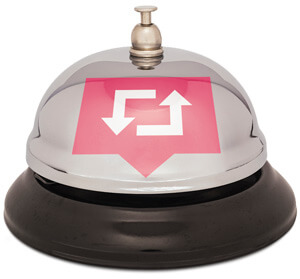 Say it’s a Friday night, and the hotel bar is packed. One guest is irate at being cut off, and the bartender is looking to a security officer for assistance. Then the guest takes out a cell phone and tries to intimidate the staff by filming.
Say it’s a Friday night, and the hotel bar is packed. One guest is irate at being cut off, and the bartender is looking to a security officer for assistance. Then the guest takes out a cell phone and tries to intimidate the staff by filming.
According to Kelly Klatt, CPP, CLSD (Certified Lodging Security Director), founder of the hospitality security consulting company Center for Security Solutions Inc., a savvy security officer—well-trained and ready for such scenarios—will smile and explicitly say on camera, “You do not have permission to record me,” and then continue to defuse the situation as he or she normally would according to company guidelines.
Yes, the camera can be off-putting to employees who are uninterested in Internet fame, but that explicit, on-camera denial is crucial, Klatt says.
He adds that if a guest does post the video, then a company’s social media or press relations department can reach out to the video hosting site and request it be removed. “It may get up there for a day or two or for an hour or two, but eventually because there was no permission granted by the person being filmed, it will be removed,” he notes.
As part of training, all staff should adopt the assumption that everything published, posted, or streamed can be introduced in evidence.
With social media, the truth can be found in a YouTube video as well as video surveillance, and whether your security team is made up of part-time, hourly, or salaried employees, it’s more than just healthy paranoia to assume that anything you say or do is discoverable in court.
All associates should be trained to recognize that in such incidents, what they say and do represents an entire company. When a camera or microphone is pushed into an employee’s face, that “employee holds the reputation of your brand in the palm of their hand,” Bonnell says.

He recommends instructing security staff on how to appropriately react to anyone in control of a camera—not just news anchors or pranksters, but every guest and person with a working cell phone. Bonnell boils it down to four words: “Don’t engage, don’t argue.” Instead, redirect the interviewer to a supervisor or appropriate manager.
When the process is broken down, it starts with identifying available information: who is behind the camera and what they are doing. “Then keep following all your leads, working with the police department and your own investigations department,” Klatt says. “Then, make direct contact if need be, if it’s non-criminal. If it’s criminal, let the police department handle it.”
Nine times out of 10, Klatt says, a video isn’t uploaded, after the guest sobers up or realizes he or she would look foolish. But sometimes, videos are still posted, leaving hotels with the task of trying to take them down. Social media sites have certain requirements that must be met before permanently removing a video, and an easy one to train staff on is an explicit on-camera denial of permission to record them.
“You have to establish that there was no consent given,” Klatt says.
Klatt also recommends making a note of the time and date when the video was recorded or transmitted, which will help to remove the video even if someone edits the denial out of the recording.
Another legal requirement hotel security must consider when asking a site to take down a video is whether the state adheres to either one-party or two-party consent parameters. While two-party consent states require informed consent from both the recording’s subject and the person taking the video, one-party consent only needs acceptance from one of the people on a recording.
If an issue does reach a courtroom, expect that any or all videos could be proof of the training, or lack thereof, provided by the employer.
“I unfortunately have too many video tapes that are introduced as evidence against us where a reporter threw a camera in the face of one our employees and started asking questions like ‘Well, that’s a violation of your policy, isn’t it?’” Bonnell says. “And the employee goes, ‘Yeah, I guess you’re right.’ It’s not that employee’s fault. It’s the fault of the employer.”
And the same potential for liability can now be found on video social media sites. “You’ve got to anticipate if you’re going to see it on YouTube, you’re going to see it on Facebook, or if you’re going to see it in a courtroom,” he adds.
Social Media First Responders
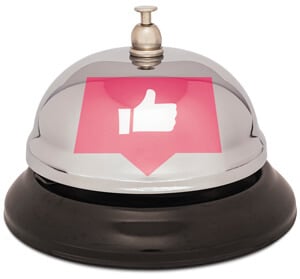 As in every industry, working across departments helps non-security personnel understand a security officer’s needs and goals, and vice versa.
As in every industry, working across departments helps non-security personnel understand a security officer’s needs and goals, and vice versa.
“Any hotel security team needs to have a close working relationship with anyone who’s involved in social media for that facility because they are providing you with information,” Klatt says. This partnership also enables a security leader to know if a hospitality company’s public relations department can easily and quickly connect with social media providers. Such relationships with sites that could host adverse media are critical, according to Bonnell, and are akin to the relationships built with major networks and news providers. Some hospitality companies already have relationships with social media sites, using the platforms to promote the hotels, events, or other facets of the organization.
It is crucial to establish these relationships with platform representatives before a security or liability issue hits social media. Like working with first responders during a physical security incident, “the time to meet them is not when you have a problem,” Klatt says. “The time to meet them is before you have that problem and you can establish a relationship and who to call.”
The security team should reciprocate in the PR partnership, immediately informing the head of public relations or social media about any experiences that could pop up on platforms, and whether the event was positive or negative.
While a good incident can promote the organization, it is wise to reinforce training that directs public interactions to the appropriate person. “They are also the ones who write and address the press releases,” Klatt says. “So, if we’re going to have someone speak, it’s always going to be the same person. One voice from the organization, one voice that we know and recognize and is a pro at doing those kinds of things, instead of throwing somebody in front of a camera or on the phone that hasn’t done it before.”
Besides videos, social media sites can also host negative comments, sometimes on a hotel’s own page. Although it can look bad, there may be no grounds to remove the comment from the site. Here, coordination with other departments, especially the person in charge of maintaining an organization’s social media, can assist in a simple manner: business as usual.
If the pages are regularly updated, especially on a daily basis, then “the way you remove some articles is by posting additional articles, and then it gets moved to the bottom, and it gets further and further away, and it has less and less impact,” Kelly says. “The worst thing you can do is comment on a negative article, because then it puts it back up front again.”
The Upside
 An organization’s social media or press relations department knows full well that social media can work as an effective tool for promoting a facility, despite its potential to be used against a facility. And beyond advertising, security teams could use social media as a tool for early detection.
An organization’s social media or press relations department knows full well that social media can work as an effective tool for promoting a facility, despite its potential to be used against a facility. And beyond advertising, security teams could use social media as a tool for early detection.
People voluntarily post about potential incidents, such as protests at events on hotel property, that security personnel otherwise might have missed, Moxness says. “It’s in a lot of ways easier to detect things like that because there’s social media presence.”
Moxness doesn’t see social media as a game changer to security, but rather as a faster element of information that needs to be redirected into a positive outcome. Usurping traditional views, social media has the potential to tell a good story about the hospitality security team.
Sara Mosqueda is assistant editor at Security Management. Contact her at [email protected]. Connect with her on LinkedIn.
